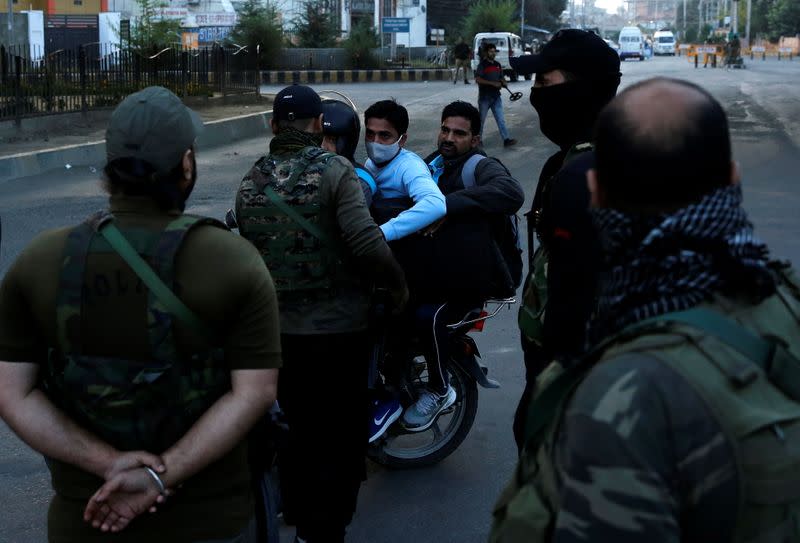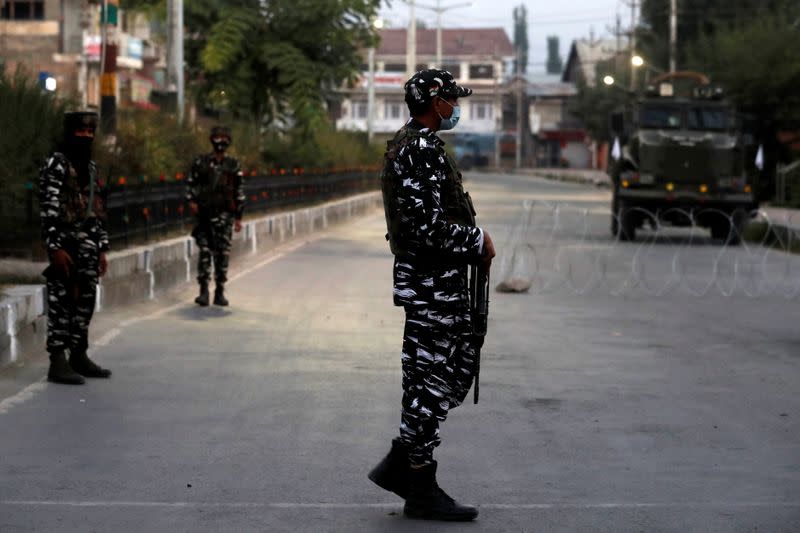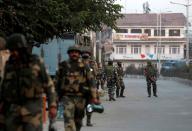India locks down restive Kashmir after burial of separatist leader
By Fayaz Bukhari
SRINAGAR, India (Reuters) -Authorities in Indian Kashmir imposed curbs on the movement of people and communications until Friday, a police official said, to prevent people from gathering in the streets following the death of a veteran secessionist leader.
Syed Ali Shah Geelani was laid to rest in Indian Kashmir's main city of Srinagar in the early hours of Thursday, with the disputed Himalayan region blanketed with troops to prevent large-scale protests.
Geelani, 91, was buried in a graveyard near his home before dawn at the insistence of security forces and against the wishes of his family, his son Syed Naseem Geelani told Reuters. He died on Wednesday.
Kashmir's police chief, Vijay Kumar, denied the allegation and said authorities facilitated the burial to prevent any violence.
Around Geelani's home and elsewhere in Srinagar, armed troops lined main roads and manned checkpoints, a Reuters witness said.
Internet connections and mobile networks in the Kashmir valley were also cut since late on Wednesday.
Still, some people defied the curbs in Srinagar and pelted stones at security forces, prompting tear gas firing to stop them, a government official said.
Kumar, however, said the overall security situation in Kashmir valley was under control and restrictions, which have been imposed as a precautionary measure, would continue into Friday.
"There was threat to peace and potential law and order situations," he told Reuters.
Among the most prominent political leaders in Kashmir - a Himalayan region claimed by both India and Pakistan in full, but ruled in parts - Geelani for years led an umbrella alliance of secessionists known as the Hurriyat Conference.
But the group split in 2003, when hardliners led by Geelani, who advocated Kashmir's merger with Pakistan, walked out after moderates decided to hold talks with New Delhi.
In August 2019 Indian Prime Minister Narendra Modi split Jammu and Kashmir - then the country's only Muslim majority state - into two federally-administered territories.
The shock move was opposed within Kashmir, including by the likes of Geelani.
(Reporting by Fayaz Bukhari and Altaf Bhat, Writing by Devjyot Ghoshal; Editing by Michael Perry, William Maclean)












